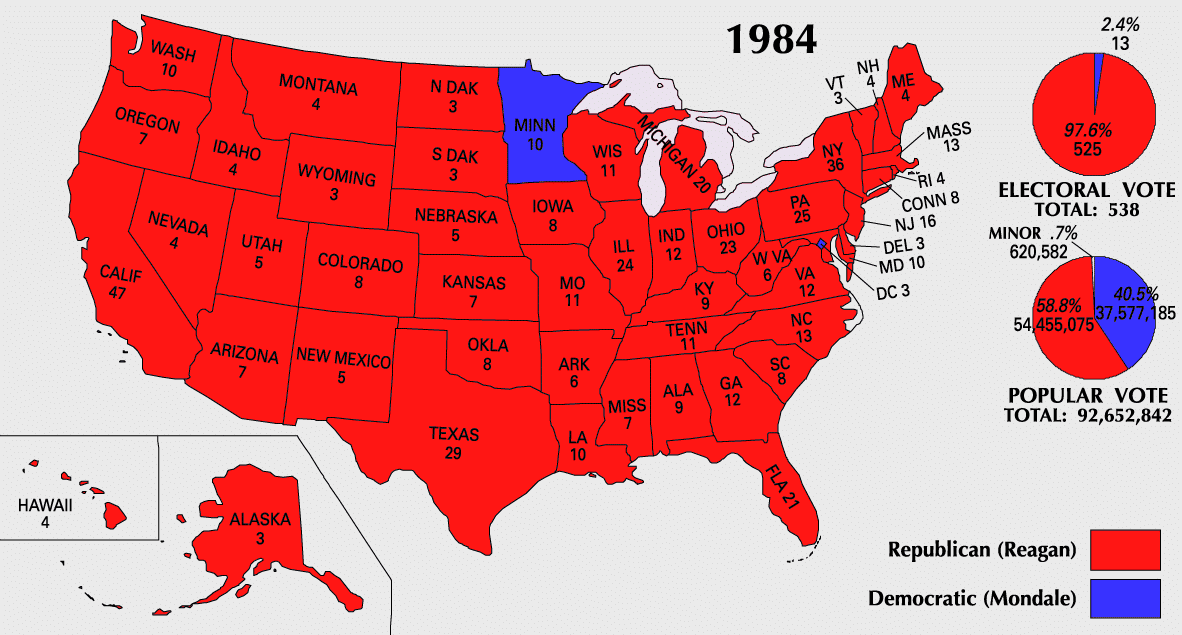The Presidential Election of 1984 was the 50th Presidential Election in the United States and, despite its landslide outcome, had a significant first event when a woman was selected to be a Vice President candidate.

In 1980, Ronald Reagan was elected president and took over a bad economy and a terrible foreign policy situation that was left by his predecessor, Jimmy Carter. In four short years, the economy roared back, and the Soviet Union was beginning to feel the pressure from the United States spending during the arms race.
Reagan was a popular president, and it seemed as if it would be impossible to replace him.
The Democrats nominated the former Vice President for the unpopular Jimmy Carter and then nominate the first woman for Vice President.
The candidates were as follows:
- Republicans: Ronald Reagan and Vice President George H. W. Bush
- Democrats: Walter Mondale and Vice President Geraldine Ferraro
Platforms
Republicans: President Ronald Reagan ran on his strong economy and defense spending and promised to continue to do more. He had made good on all of his promises in 1980, and it seemed as if his decisions were correct. Reagan was a very popular president, even in states that would move decisively to the left in the following decade.
Democrats: Mondale ran a liberal campaign, supporting a nuclear freeze and the Equal Rights Amendment (ERA). He spoke against what he considered to be unfairness in Reagan's economic policies and the need to reduce federal budget deficits. The choice to put Geraldine Ferraro as the Vice Presidential candidate was believed by many to appease the women's rights groups.
Outcome
Ronald Reagan would go on to win the election by the largest margin in the history of the United States, with the exception of George Washington. He surpassed Richard Nixon's victory during the Election of 1968 when voters swung for him due to the rioting throughout the country.
As of the 2016 election, this was the last time that a Republican won the states of Oregon, Washington, Massachusetts, New York, Rhode Island, and Hawaii in a presidential election. All of these states have moved decisively into the Democratic column since then and are not considered to be competitive for Republicans anymore.
What stood out in the election of 1984 was Reagan's humor and charisma. During a presidential debate, Ronald Reagan was questioned about his age since he was the oldest president to be elected. His response to the question even made his opponent laugh.
Walter Mondale's election just did not get any traction among the public. While Unions supported him, Independents found him to be too liberal, as did southern Democrats who began to turn from the Democratic party.
Mondale carried his home state of Minnesota and the District of Columbia.
